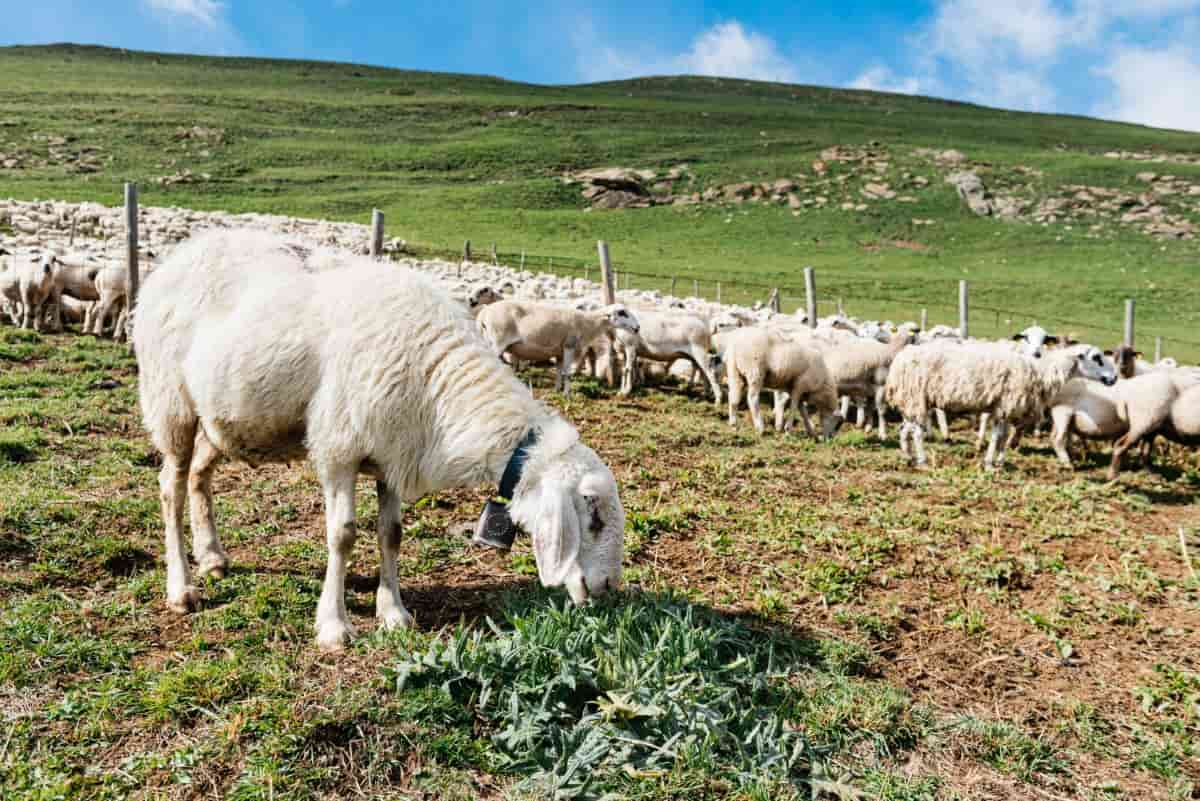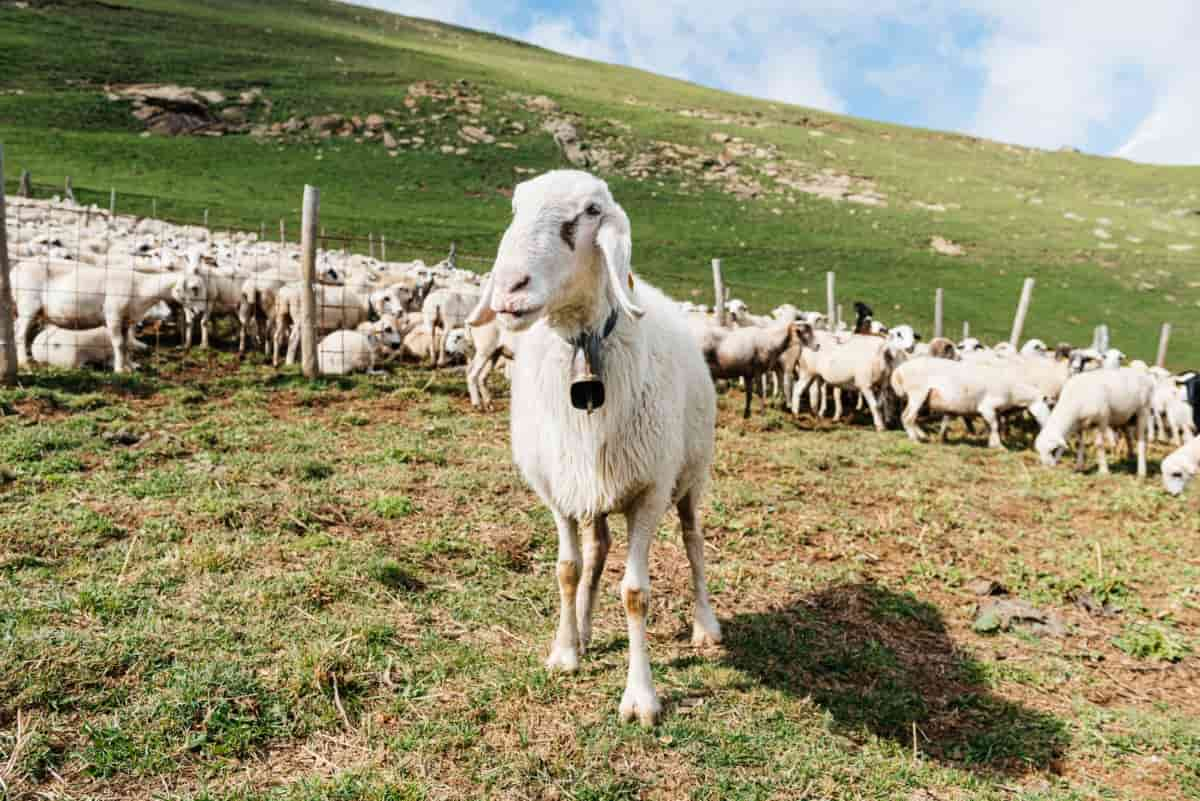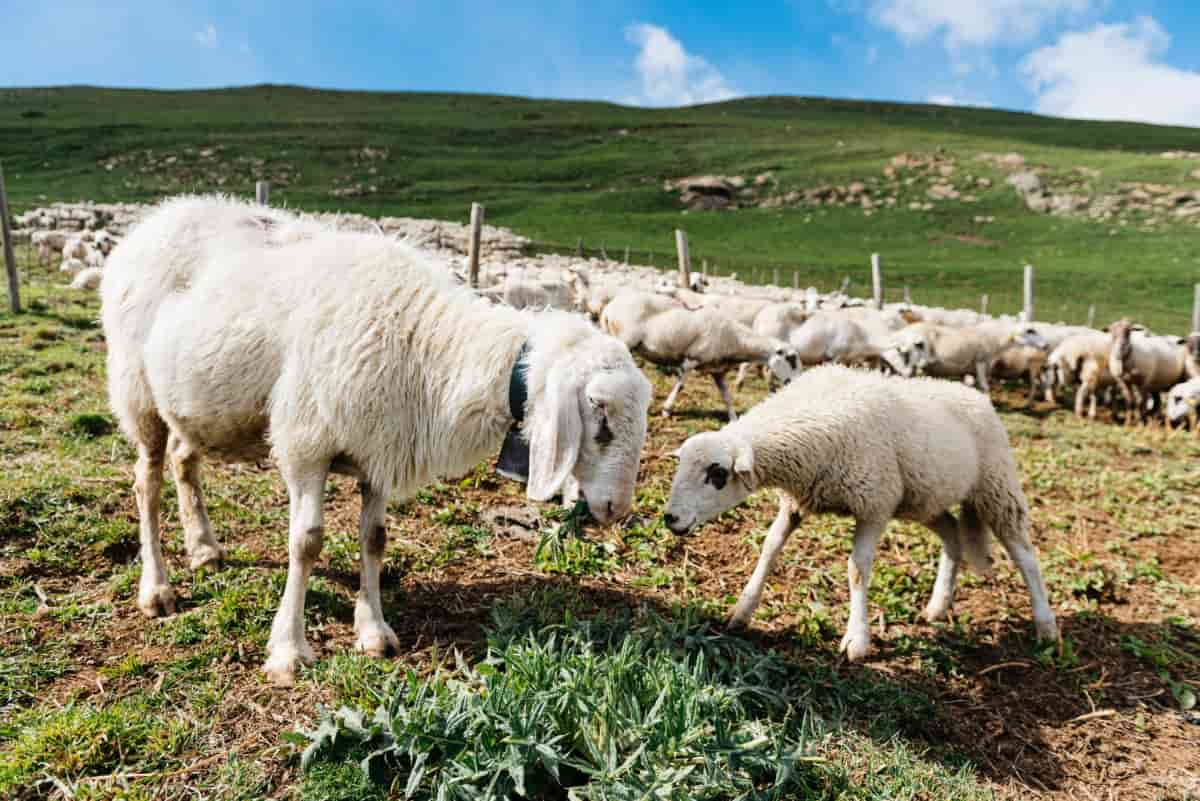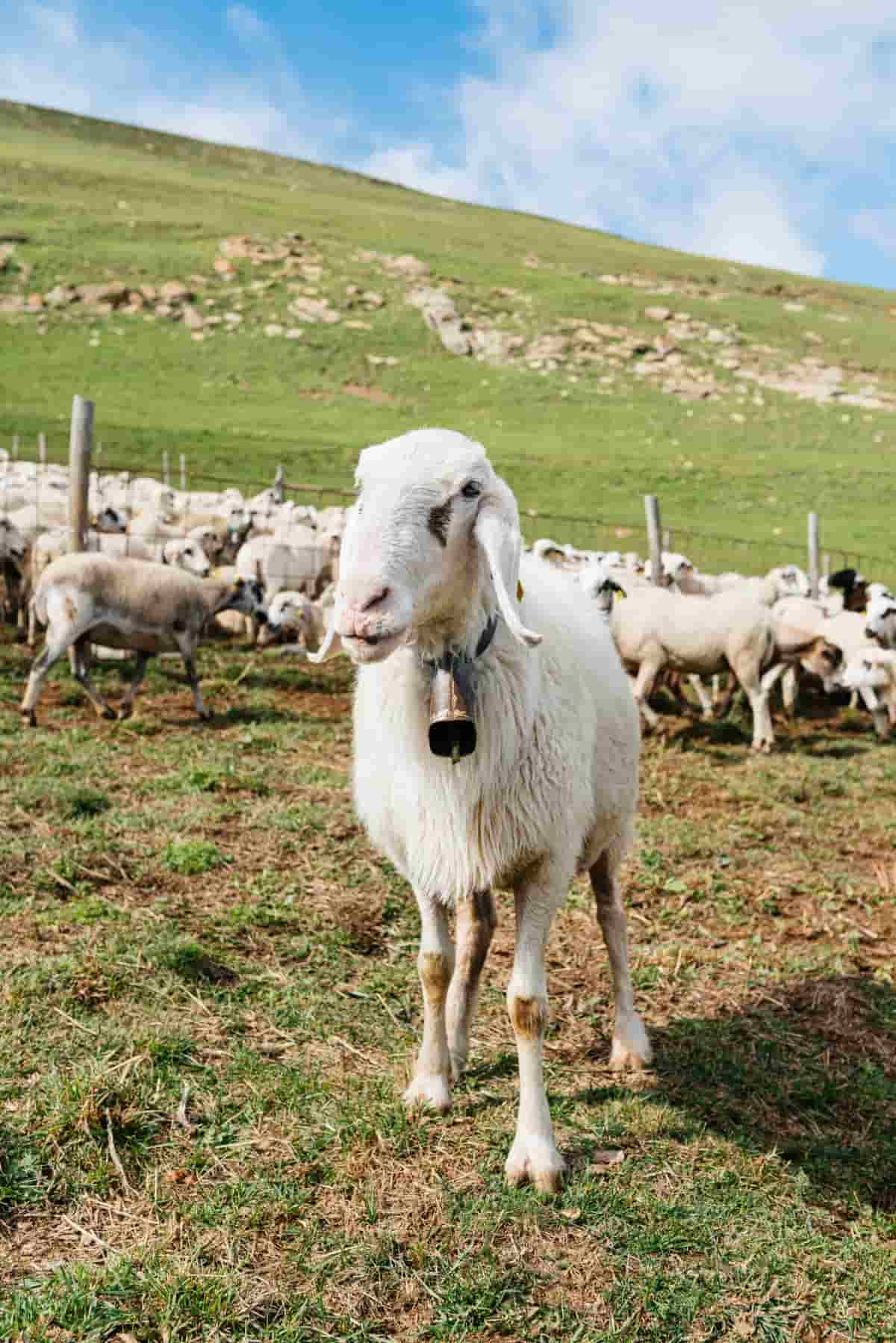Raising the Assaf Sheep holds significant importance for both farmers and the agricultural industry. These sheep are prized for their high milk production, making them valuable in dairy farming. The quality of milk produced by Assaf sheep is rich in nutrients and ideal for producing various dairy products.

All You Need to Know About Assaf Sheep
Origin and Breed Development
The Assaf sheep, originating from Israel, is a remarkable breed resulting from the crossbreeding of Awassi and East Friesian sheep. This fusion has led to the development of a medium to large-sized animal with impressive characteristics. The breed development process involved crossing Awassi ewes with East Friesian rams, resulting in a hybrid that combines the traits of parent breeds. Over generations, selective breeding further refined the characteristics of Assaf sheep, leading to their renowned reputation for high milk yields and superior meat quality.
Distinctive Features and Breed Profile
These medium to large-sized creatures bring a blend of traits that make them stand out in the world of domesticated sheep farming. This unique blend has given rise to distinctive features in Assaf sheep that set them apart within the ovine world. Their adaptability and robust nature make them well-suited for various farming environments. These sheep are known for their high fertility rates and prolific breeding, ensuring a steady supply of lambs for meat production as well.
In terms of physical features, the Assaf sheep typically have white wool with distinctive black or brown patches on their faces and legs. Their sturdy build and strong limbs enable them to thrive in different environments, from arid regions to more temperate climates. Ewes typically weigh between 70 to 100 kg, while rams can reach weights ranging from 90 to 140 kg. In terms of their breed profile, Assaf sheep are known for their superior milk production capabilities and excellent wool quality.
Physical and Behavioral Characteristics
Physical Traits of Assaf Sheep
Assaf sheep are known for their distinctive physical traits that set them apart from other breeds. Moreover, Assaf sheep are known for their adaptability to different climates and terrains, making them a versatile livestock option worldwide. Their genetic makeup allows them to thrive in various environmental conditions, enhancing sustainability in farming practices.
The Assaf sheep breed is known for its robust and sturdy physique, making them well-suited for various climates. The striking physical trait of Assaf sheep is their long, spiral horns that curve backward towards their neck. These horns not only serve as a means of defense but also add a unique characteristic to their overall appearance. The physical attributes of Assaf sheep contribute to their resilience and adaptability in various farming environments without compromising productivity or quality.
Behavioral Traits and Temperament
In terms of behavior, Assaf sheep exhibit a gentle and docile temperament, making them easy to handle and work with. They are social animals that thrive in flock settings, showing good adaptability when introduced to new environments or routines. The combination of impressive physical attributes and amiable behavior makes Assaf sheep a popular choice among farmers seeking a versatile and manageable herd on their farms.
In case you missed it: Zwartbles Sheep: Raising Facts, Profile, Characteristics, Uses, and Care

Breeding and Reproduction Techniques
Genetic Selection and Breeding Goals
Breeding Assaf sheep involves strategic genetic selection to improve desirable traits. By carefully choosing breeding stock based on health, milk production, and wool quality, farmers can enhance the overall genetics of their flock. Breeding goals may include increasing milk yield or improving resistance to common diseases.
Reproduction Management and Lambing Strategies
Reproduction management is crucial for successful breeding programs in raising Assaf. Monitoring ewes’ estrus cycles and implementing controlled mating practices ensure optimal conception rates. Lambing strategies involve providing adequate nutrition and shelter for pregnant ewes, as well as proper medical care during birthing. Genetic diversity plays a major role in maintaining a healthy and robust flock. Effective breeding and reproduction techniques are essential for sustainable farming practices and long-term success in raising Assaf sheep.
Habitat and Environmental Adaptations
Ideal Living Conditions for Assaf Sheep
The ideal living conditions for Assaf sheep include access to shelter from extreme weather, ample pasture for grazing, and clean water sources. They prefer open spaces where they can roam freely while still having the option to seek shade or protection when needed.
Adapting to Various Climates and Terrains
Assaf sheep have shown remarkable resilience in adapting to diverse landscapes. Their adaptability is a testament to their genetic makeup and robust constitution honed through years of evolution. Providing a suitable habitat that mimics their natural environment is crucial for ensuring their well-being and productivity.
Nutritional Requirements and Diet
Essential Nutrients for Optimal Health
Ensuring that your Assaf sheep receive the right nutrients is crucial for their optimal health and well-being. A diet rich in nutrients like vitamins, protein, and minerals is key to keeping sheep healthy.
Feeding Practices and Forage Management
Feeding practices play a major role in maintaining their overall health, so make sure to provide them with quality hay, grains, and freshwater daily. Forage management is also important when caring for Assaf sheep.
Grazing on pasture can be beneficial for their nutrition, but it’s essential to monitor the quality of the grass they consume. Supplementing their diet with high-quality forage ensures they get all the necessary nutrients they need to thrive. Contact with a veterinarian or animal nutritionist can help you develop a customized feeding plan tailored to meet your Assaf sheep’s specific dietary requirements.
Health Care and Disease Prevention
Common Health Issues in Assaf Sheep
Health care for Assaf sheep is crucial to ensure their well-being and productivity. They are affected by certain health issues that can affect their overall health. Common health issues in Assaf sheep include parasitic infections, foot rot, and respiratory diseases.
Preventative Healthcare Measures
To prevent these issues, it’s essential to implement preventative healthcare measures such as regular deworming, proper hoof trimming, vaccination against prevalent diseases, and maintaining a clean living environment. Early detection of any signs of illness is also key in ensuring prompt treatment. Regular veterinary check-ups and consultations can help monitor the health status of your flock and address any concerns promptly.
In case you missed it: Ultimate Guide to Raising Pelibuey Sheep: Farming Facts, Breed Profile, Uses, and Care

Wool and Milk Production
Quality and Characteristics of Assaf Wool
The quality of Assaf wool is highly sought after for its softness and durability, making it ideal for a variety of textile applications. With proper care and grooming, Assaf sheep can produce a significant amount of high-quality wool each year.
Milk Yield and Dairy Production Practices
Assaf ewes are known for their impressive milk yield, providing rich and creamy dairy products. Their milk is prized for its high protein and fat content, making it a valuable resource for cheese and yogurt production. Dairy farmers appreciate the efficiency of Assaf sheep in terms of milk output compared to other breeds.
In dairy production practices, maximizing the potential of Assaf sheep involves implementing rigorous milking schedules and ensuring proper nutrition to support lactation. By focusing on both wool and milk production aspects, raising Assaf sheep offers a well-rounded opportunity for sustainable farming practices that cater to diverse market demands.
Marketing and Economic Considerations
Selling Wool and Dairy Products
Selling high-quality wool can be a profitable venture, especially if marketed towards niche markets that appreciate the unique characteristics of Assaf wool. Dairy products from Assaf sheep also have their market appeal, offering rich and creamy milk that is sought after by consumers looking for premium dairy options. By emphasizing the quality and health benefits of Assaf sheep milk, farmers can tap into lucrative markets willing to pay a premium price.
Economic Challenges and Opportunities
Economic challenges such as fluctuating market prices and competition from other livestock industries can impact profitability. Farmers need to stay informed about market trends and adapt their marketing strategies accordingly. Despite challenges, there are ample opportunities for those raising Assaf sheep to capitalize on growing consumer interest in sustainable and ethically produced agricultural products.
Sustainable Practices in Raising Assaf Sheep
Environmental Sustainability and Land Management
Implementing environmentally friendly practices and managing the land ethically are essential components of responsible farming. By focusing on environmental sustainability, farmers can ensure that their operations have a slight impact on the ecosystem. This includes using eco-friendly farming methods, reducing waste, and preserving natural resources for future generations.
Ethical Animal Welfare Practices
Practicing ethical animal welfare ensures that Assaf sheep are treated with care throughout their lives. Providing sheep with a comfortable living environment, proper nutrition, and access to clean water is crucial for their well-being. Sustainable practices in raising Assaf sheep not only benefit the animals but also contribute to the overall health of the farm ecosystem.
In case you missed it: Perendale Sheep Facts: Ultimate Guide to Breeding, Raising, and Care

Conclusion
Raising Assaf sheep comes with a multitude of benefits that make them an excellent choice for farmers and homesteaders alike. These hardy animals are known for their high milk production, making them ideal for dairy operations.
- Feed Your Flock for Less: Top 10 Tips to Save on Chicken Feed
- Ultimate Guide to Ossabaw Island Hog: Breeding, Raising, Diet, and Care
- Hatching Answers: The Top 10 Reasons Your Chickens Aren’t Laying Eggs
- Eggs and Economics: Breaking Down the Cost of Raising Backyard Chickens
- Defend Your Greens: Proven Methods to Keep Iguanas Out of Your Garden
- Ultimate Guide to Cinnamon Queen Chicken: A Comprehensive Guide for Beginners
- Ultimate Guide to California Tan Chicken: Breeding, Raising, Diet, Egg-Production and Care
- Ultimate Guide to Marsh Daisy Chicken: Breeding, Raising, Diet, and Care
- 10 Types of Chicken Farming Businesses You Can Start for Profits